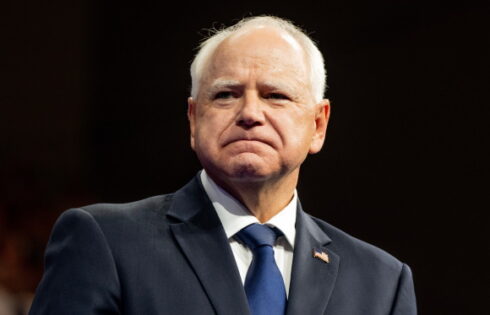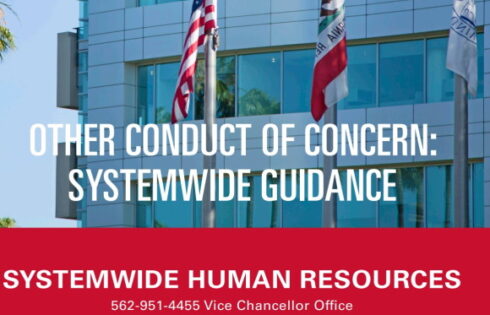
Rural Indiana is one of the last places you might expect to find people discussing international politics or holding forums on Christian-Muslim relations. But the Middle Eastern Cultural Association (MECA) at Taylor University is doing precisely that.
On February 2nd, roughly three hundred students crowded into a standing-room only auditorium to hear Dr. Michael Rydelnik, author and Professor of Jewish Studies at Moody Bible Institute, give a talk entitled “Understanding the Arab Israeli Conflict.” The talk, though polite, did create some conflict during the Q & A session, when an argument broke out between Dr. Rydelnik and a pro-Palestinian student over Israeli guilt.
“The Palestinians have been mistreated,” Dr. Rydelnik said. “Not only by Israel, but also by the Arab world. There is a feeling of betrayal and alienation among the Palestinians I’ve talked to.” He later added, “I think Israel is very dedicated to making a lasting peace with the Palestinians, but they are far more concerned about stopping the existential threat of a nuclear Iran.”
Recently tensions have been on the rise in Iran. On January 10th, Reuters reported that some estimates showed the inflation rate at nearly 40%. In the past few weeks, additional sanctions have been placed on the Iranian central bank and energy industry. This economic blow, paired with the January 11th presumed assassination of an Iranian nuclear scientist, the most recent in a series of suspicious deaths, has the Iranian regime out for blood. Iran soon issued a series of threats to close the Strait of Hormuz, a critical waterway through which 20% of the world’s oil passes.
But, despite the evidence that Western efforts to halt the Iranian nuclear pursuits are having noticeable effects, some argue that American efforts have not gone far enough. In an interview with Israel Radio, Israeli Cabinet Minister Moshe Ya’alon claimed that despite a 100-1 resolution for more aggressive sanctions in the U.S. Senate, the Obama administration has shown reluctance.
“There is hesitation for fear of oil prices rising this year, out of election-year considerations,” Ya’alon said. “This is certainly a disappointment, for now.”
Young Voters Weigh Candidate Positions
Israeli leaders are not the only ones disappointed in the President’s handling of the Middle East. Many college students, particularly those who paid close attention to the excitement surrounding President Obama’s 2008 campaign, feel less enthusiastic about politics in general.
“I’ll be honest, I’m not seeing much of a reason to follow this election that closely,” said Matthew Stafford, a sophomore at the University of Michigan. “I’ll probably just wind up voting for Ron Paul.”
Republican Presidential candidates present young voters with a range of opinions about the Middle East. On one extreme, former Speaker of the House Newt Gingrich recently called the Palestinians an “invented people,” and claims the United States is setting Israel up for a nuclear holocaust. On the other, Representative Ron Paul advocates eliminating foreign aid for Israel and Palestine, and not to mention every other country. He argues that the reason Iran and stateless terrorist organizations target America is because of our involvement in the region.
In between the two, Senator Santorum and Governor Romney have each taken stances in support of Israel. Santorum opposes a two-state solution, and has expressed support for a possible military action to destroy Iran’s nuclear capabilities.
“If Iran acquires nuclear weapons, it will be dangerous first to its Sunni Muslim neighbors, then to Americans,” Santorum said.
Governor Romney on the other hand, has focused more on President Obama’s criticism of Israel, and labels it “being critical of our friends.”
That criticism, held up by Republicans as an example of President Obama’s failed foreign policy, resonates among some disenchanted college students. “It’s very unlikely I’ll be voting for Obama, no matter who the Republicans nominate,” said Alex Miller, a student at Cornell University. “I missed out on the election last time around. I’m definitely looking forward to voting this year.”
Debating the Proper Level of Foreign Engagement
Some young voters would like to see less U.S. intervention abroad. “I’m in favor of a less internationally involved candidate,” said Stafford. “I’ll support whatever candidate shows that more.”
Yet many describe such a disengaged foreign policy as insufficient or naive. Joel Rosenberg, author and political analyst has spent a lifetime watching the Middle East. He rose to national renown in the early 2000’s after writing an eerily prophetic series of geopolitical thrillers.
“Will [Western economic sanctions] be enough to stop Iran from building an arsenal of nuclear weapons?” Rosenberg mused on his Middle East blog. “Personally, I’m not convinced. Such moves would have been good a few years ago. Now they strike me as too little too late…”
On January 29th, he quoted Israeli Defense Minister Ehud Barak as saying that the situation in Iran is “A genuine concern. The Iranians are a nation whose leaders have set themselves the strategic goal of wiping Israel off the map.”
And most recently, a February 2nd CNN article quoted U.S. Defense Secretary Leon Panetta who believes “There is a strong likelihood Israel will strike Iran in April, May, or June.”
With such incredibly high stakes, and considering the enormous American investment in the region, the Middle East situation will remain a significant issue for young voters throughout the upcoming election.
Fix Contributor Ryan Dennison is a student at Taylor University.
Like The College Fix on Facebook / Follow us on Twitter





Please join the conversation about our stories on Facebook, Twitter, Instagram, Reddit, MeWe, Rumble, Gab, Minds and Gettr.